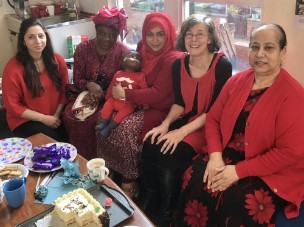Our history
The Community Action Center for Women Empowerment is based directly on a unique and innovative approach to work with women offenders that was developed by the local probation service between 1993 and 2001. The centre was established as a registered charity in 2002 and broadened its aims to include addressing the needs and issues of all vulnerable and socially excluded women. The relevance of Asha’s approach to work with women offenders and those at risk of offending was strongly endorsed in Baroness Corston’s report (2007) on the needs of vulnerable women in the criminal justice system.

Over the last decade the Community Action Center for Women Empowerment has become nationally recognised as model for work with socially excluded women, and especially women offenders and during this time has frequently attracted the attention of policy makers.
It was cited by the Department of Health in 2003 as a good practice model for work with women with mental health problems (Department of Health, 2003). It was also brought to the notice of criminal justice policy makers by the director of the Prison Reform Trust, Dr Juliet Lyon, as a potential alternative means of dealing with women who were being sent to prison.

By 2007 it had been cited in a number of government publications, the most important of which was the Corston Review, set up to consider how the high levels of suicide and self-harm among women prisoners could be prevented. A report by the New Economic Foundation (2008) concluded, after interviewing women attending the centre, that Asha provided a social return on investment of £14 for every £1 spent, compared with use of imprisonment for women and that the long term benefits over a 10 year period amounted to over £100m.